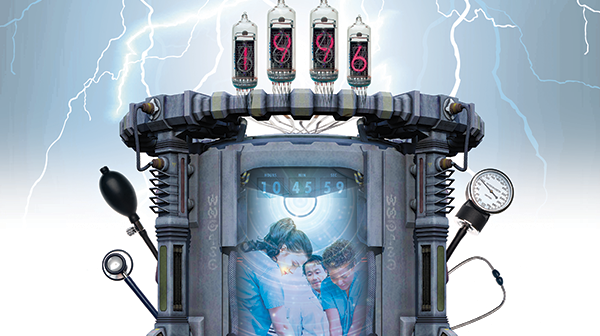
Schools have struggled with the best way to interview medical student applicants, incorporating behavioral questions into the discussion to assess non-cognitive abilities. “Tell me about a time when you received some feedback that was difficult to hear.” These behavioral interviews are not the best way to identify students who may experience difficulties during medical school, particularly in the clinical years. Many schools have transitioned to Multiple Mini-Interviews (MMI). There are several stations (usually 10–12, each lasting 8–10 minutes). Domains assessed may include critical thinking, ethical decision-making, communication skills, and knowledge of the health care system, interspersed with more traditional interview questions.4 Studies have shown that the MMI is the most consistent predictor of success in the early years of medical school, as well as national licensing exams.5-6
Explore This Issue
ACEP Now: Vol 33 – No 02 – February 2014References
- https://www.aamc.org/students/aspiring/
- 2003 Matriculating Student Questionnaire AAMC. 2003.
- 2013 Matriculating Student Questionnaire. AAMC December 2013.
- AAMC: Applicant Matriculant File as of 11/9/2011.
Reference
And then there’s the “other stuff.” This has become an important part of application preparation, with the hopes that it gives a glimpse into the patient-doctor relationship. Leadership and extracurricular activities are important markers of a well-rounded student who will be up to the new challenges that medical school will present. Research experience is nice, at least a taste (although many of the students I interview have projects that result in presentations and publications). And then there are the service and volunteer experiences: Habitat for Humanity, volunteering at free local health clinics or shelters, mission trips, working with children or the elderly in the community. On a fairly regular basis, there is a student with absolutely remarkable achievements in this aspect. For example, I’ve interviewed students who have established orphanages abroad. I am humbled on a regular basis.
Schools have struggled with the best way to interview medical student applicants, incorporating behavioral questions into the discussion to assess non-cognitive abilities. These behavioral interviews are not the best way to identify students who may experience difficulties during medical school.
Times—and People—Have Changed
I am a Generation X-er who was raised by Traditionalists, with Baby Boomers as older siblings, trying to counsel and advise Millennials. It sounds complex, so let’s break it down with reference to the current physician workforce.
Many of the Traditionalists have retired clinically but, not surprisingly, are still around to teach and pass on their wisdom: the classic Professor Emeritus. They value loyalty, hard work, and formality, and aren’t known for challenging the system. They believe in delayed gratification and seniority. These were the people for whom the term “resident” was coined because they lived at the hospital. They paved the way for the largest of the recognized generations, the Baby Boomers.
Pages: 1 2 3 4 | Single Page







No Responses to “Today’s Medical Students and the Medical School Landscape”